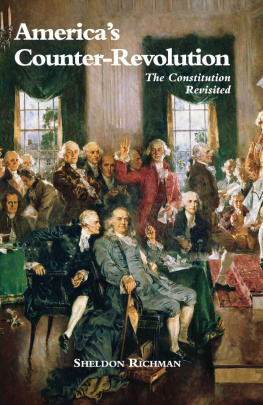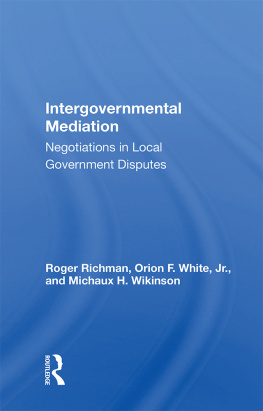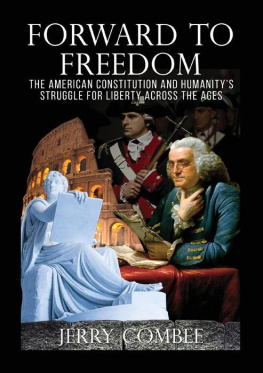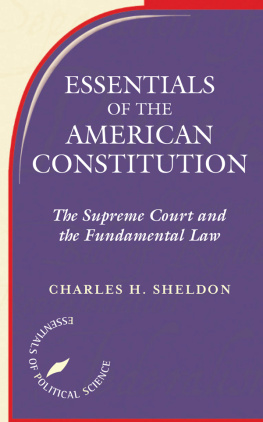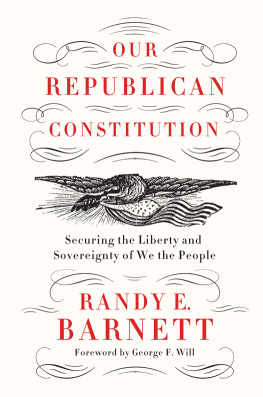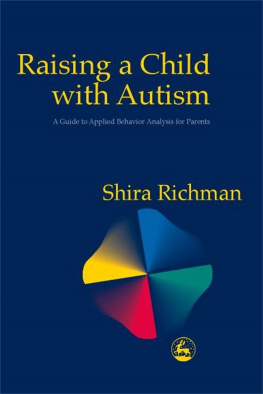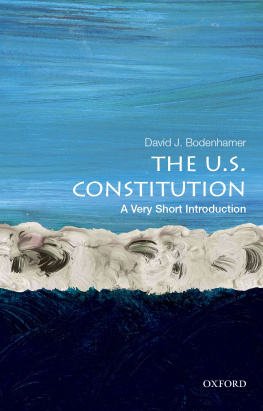Sheldon Richman - America’s Counter-Revolution: The Constitution Revisited
Here you can read online Sheldon Richman - America’s Counter-Revolution: The Constitution Revisited full text of the book (entire story) in english for free. Download pdf and epub, get meaning, cover and reviews about this ebook. year: 2016, publisher: Griffin & Lash, genre: History / Science. Description of the work, (preface) as well as reviews are available. Best literature library LitArk.com created for fans of good reading and offers a wide selection of genres:
Romance novel
Science fiction
Adventure
Detective
Science
History
Home and family
Prose
Art
Politics
Computer
Non-fiction
Religion
Business
Children
Humor
Choose a favorite category and find really read worthwhile books. Enjoy immersion in the world of imagination, feel the emotions of the characters or learn something new for yourself, make an fascinating discovery.
- Book:America’s Counter-Revolution: The Constitution Revisited
- Author:
- Publisher:Griffin & Lash
- Genre:
- Year:2016
- Rating:4 / 5
- Favourites:Add to favourites
- Your mark:
America’s Counter-Revolution: The Constitution Revisited: summary, description and annotation
We offer to read an annotation, description, summary or preface (depends on what the author of the book "America’s Counter-Revolution: The Constitution Revisited" wrote himself). If you haven't found the necessary information about the book — write in the comments, we will try to find it.
The Anti-Federalists were right: The pursuit of national greatness inevitably diminishes liberty and centralizes government. The U.S. Constitution did both, as Sheldon Richman demonstrates in this powerfully argued anarchist case against the blueprint for empire known as the U.S. Constitution.
--Bill Kauffman, author,Forgotten Founder, Drunken Prophet: The Life of Luther Martin
The libertarian movement has long suffered from a constitutional fetishism that embraces an ahistorical reverence for the U.S. Constitution. Far too many are unaware of the extent to which the framing and adoption of the Constitution was in fact a setback for the cause of liberty. Sheldon Richman, in a compilation of readable, well researched, and compelling essays, exposes the historical, theoretical, and strategic errors in the widespread reification of a purely political document. With no single correct interpretation, the Constitution has been predictably unable to halt the growth of the modern welfare-warfare American State. I urge all proponents of a free society to give his book their diligent attention.
--Jeffrey Rogers Hummel, Professor, San Jose State University; author,Emancipating Slaves, Enslaving Free Men: A History of the American Civil War
No state or government can limit itself through a written constitution, no matter how fine the words or how noble the sentiments they express. It is one of the many virtues of Sheldon Richmans book that it shows how this is true even of the American Constitution, which despite the promises of its designers and the insistence of its defenders down the years, made limited government less and not more likely.
--Chandran Kukathas, London School of Economics
Richman delivers an accessible, incisive, and well-grounded argument that the Constitution centralized power and undid some of the Revolutions liberating gains. He rebuts patriotic platitudes but avoids the crude contrarianism so common in libertarian revisionism written for popular consumption. He does not romanticize Americas past or overstate his case. Radical and nuanced, deferential to freedom and historical truth, Richman rises above hagiography or demonization of either the Federalists or anti-Federalists to produce an unsurpassed libertarian exploration of the subject.
- Anthony Gregory, Independent Institute
[A]fter reading this book, you will never think about the U.S. Constitution and Americas founding the same way again. Sheldon Richmans revealing and remarkably well-argued narrative will permanently change your outlook. . . . Richman . . . [is] one of this countrys most treasured thinkers and writers . . . . [H]e draws on the most contemporary and important scholarly research, while putting the evidence in prose that is accessible and compelling.
- Jeffrey A. Tucker, Liberty.me and Foundation for Economic Education
Sheldon Richman: author's other books
Who wrote America’s Counter-Revolution: The Constitution Revisited? Find out the surname, the name of the author of the book and a list of all author's works by series.

